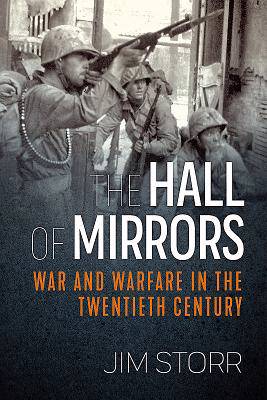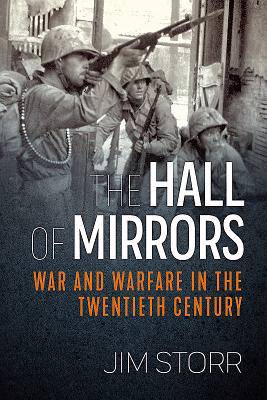
- Retrait gratuit dans votre magasin Club
- 7.000.000 titres dans notre catalogue
- Payer en toute sécurité
- Toujours un magasin près de chez vous
- Retrait gratuit dans votre magasin Club
- 7.000.0000 titres dans notre catalogue
- Payer en toute sécurité
- Toujours un magasin près de chez vous
34,95 €
+ 69 points
Description
The 20th Century was hugely violent. It was possibly the most violent century in history. It is a clearly defined period in the past. A huge amount has been written about war, and warfare, in that period. So, what can we learn from war, and warfare, in the 20th century?
War is hugely important. War shapes continents, and can do so dramatically quickly. After just 52 months of the First World War, four empires had ceased to exist. Eight new countries were born in Europe. As a result of the six years of the Second World War, Japan and Germany renounced militarism and ceased to be major players on the world stage for decades. The border of Russia moved 800km west, to the Oder. War is hugely important. It is not futile, although it appears so to some of those involved.
But how effective, for example, was the allied Combined Bomber Offensive in the defeat of Germany in the Second World War? There is, in practice, no real consensus. Similarly there is very little discussion, and apparently no agreement, as to how the western allies defeated Germany in north west Europe in 1944-5. Was it just superior numbers? (No: there were more German than Allied divisions until January 1945.) Yet both of those campaigns took place over 70 years ago. Why are those questions unanswered?
'The Hall of Mirrors is not a narrative history. It takes a deep look at war, and warfare, in the 20th Century. It looks at the strategy, the operational art, and the tactics. It looks at how technology developed, was developed, and affected military events. It looks at the human beings, the human organizations, and how they affected events. It makes judgments and comes to conclusions.
By 1919 the First World War was already over. Those millions had died; those empires had crumbled; those new nations had been born. Nothing similar has happened, thus far, in this century. All the more reason to look back and consider what did happen, and what we might learn from war and warfare in the 20th century.
War is hugely important. War shapes continents, and can do so dramatically quickly. After just 52 months of the First World War, four empires had ceased to exist. Eight new countries were born in Europe. As a result of the six years of the Second World War, Japan and Germany renounced militarism and ceased to be major players on the world stage for decades. The border of Russia moved 800km west, to the Oder. War is hugely important. It is not futile, although it appears so to some of those involved.
But how effective, for example, was the allied Combined Bomber Offensive in the defeat of Germany in the Second World War? There is, in practice, no real consensus. Similarly there is very little discussion, and apparently no agreement, as to how the western allies defeated Germany in north west Europe in 1944-5. Was it just superior numbers? (No: there were more German than Allied divisions until January 1945.) Yet both of those campaigns took place over 70 years ago. Why are those questions unanswered?
'The Hall of Mirrors is not a narrative history. It takes a deep look at war, and warfare, in the 20th Century. It looks at the strategy, the operational art, and the tactics. It looks at how technology developed, was developed, and affected military events. It looks at the human beings, the human organizations, and how they affected events. It makes judgments and comes to conclusions.
By 1919 the First World War was already over. Those millions had died; those empires had crumbled; those new nations had been born. Nothing similar has happened, thus far, in this century. All the more reason to look back and consider what did happen, and what we might learn from war and warfare in the 20th century.
Spécifications
Parties prenantes
- Auteur(s) :
- Editeur:
Contenu
- Nombre de pages :
- 312
- Langue:
- Anglais
Caractéristiques
- EAN:
- 9781912390854
- Date de parution :
- 04-01-19
- Format:
- Livre relié
- Format numérique:
- Genaaid
- Dimensions :
- 152 mm x 229 mm
- Poids :
- 635 g

Les avis
Nous publions uniquement les avis qui respectent les conditions requises. Consultez nos conditions pour les avis.






